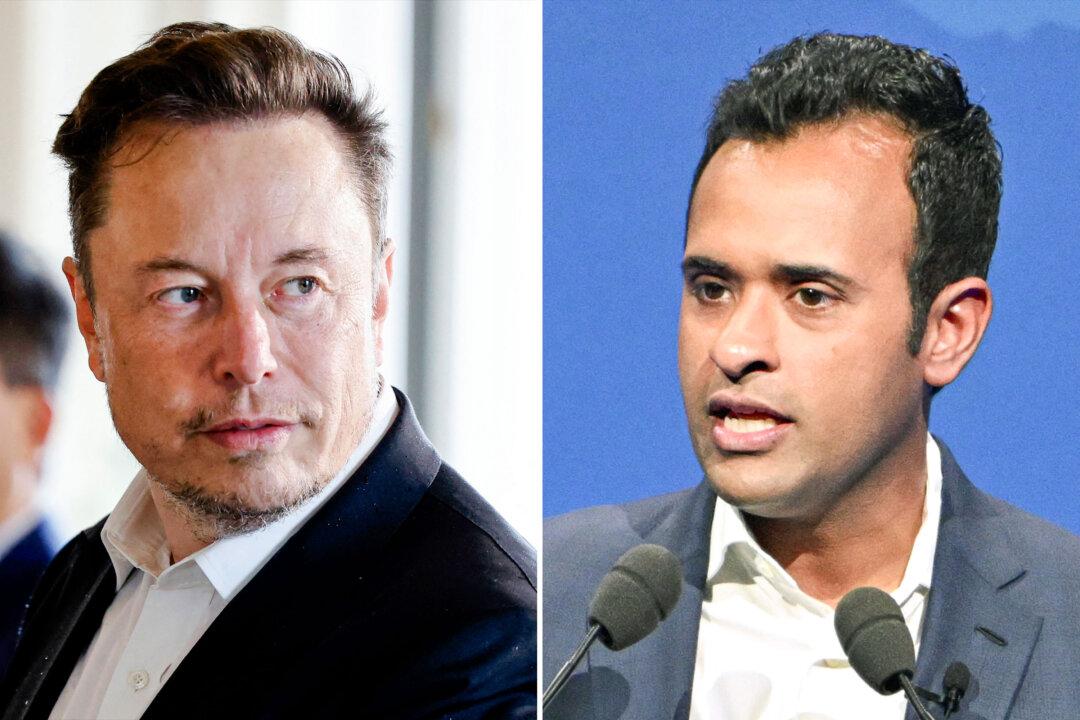President-elect Donald Trump on Tuesday announced that Elon Musk and Vivek Ramaswamy will join his administration to lead a proposed new department focused on improving government efficiency, reducing waste, and cutting excess regulation.
“I am pleased to announce that the Great Elon Musk, working in conjunction with American Patriot Vivek Ramaswamy, will lead the Department of Government Efficiency (‘DOGE’),” Trump said in a statement.





